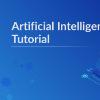Neural networks have long been used to model human intelligence, capturing elements of behavior and cognition, and their neural basis. Recent advancements in deep learning have enabled neural network models to reach and even surpass human levels of intelligence in many respects, yet unlike humans, their ability to learn new tasks quickly remains a challenge. People can reason not only in familiar domains, but can also rapidly learn to reason through novel problems and situations, raising the question of how well modern neural network models capture human intelligence and in which ways they diverge. In this work, we explore this gap by investigating human adults' ability to learn an abstract reasoning task based on Sudoku from a brief instructional tutorial with explanatory feedback for incorrect responses using a narrow range of training examples. We find that participants who master the task do so within a small number of trials and generalize well to puzzles outside of the training range. We also find that most of those who master the task can describe a valid solution strategy, and such participants perform better on transfer puzzles than those whose strategy descriptions are vague or incomplete. Interestingly, fewer than half of our human participants were successful in acquiring a valid solution strategy, and this ability is associated with high school mathematics education. We consider the challenges these findings pose for building computational models that capture all aspects of our findings and point toward a possible role for learning to engage in explanation-based reasoning to support rapid learning and generalization.
翻译:神经网络长期以来一直被用来模拟人类智能,捕捉行为和认知的要素及其神经基础。最近深度学习的进步使得神经网络模型在许多方面达到甚至超过人类智能的水平,然而,它们快速学习新任务的能力仍然是一个挑战。人们不仅可以在熟悉的领域进行推理,而且还可以快速学习推理通过新的问题和情境,这就引发了,在哪些方面现代神经网络模型捕捉了人类智能的差距以及它们的差异如何的问题。在这项工作中,我们通过研究人类成年人从简短的解释性反馈教程中学习抽象推理任务的能力,探讨了这一差距。我们发现,掌握任务的参与者可以在很少的尝试次数内掌握任务,并且能够很好地推广到训练范围之外的难题上。我们还发现,大多数掌握任务的参与者都可以描述一个有效的解题策略,这样的参与者在转移难题上表现更好,而那些策略描述模糊或不完整的人表现则较差。有趣的是,不到一半的人类参与者能够成功获得一个有效的解题策略,而这种能力与高中数学教育有关。我们考虑这些发现对于构建捕捉我们发现的所有方面的计算模型所带来的挑战,并指向学习参与解释型推理以支持快速学习和推广的可能作用。


